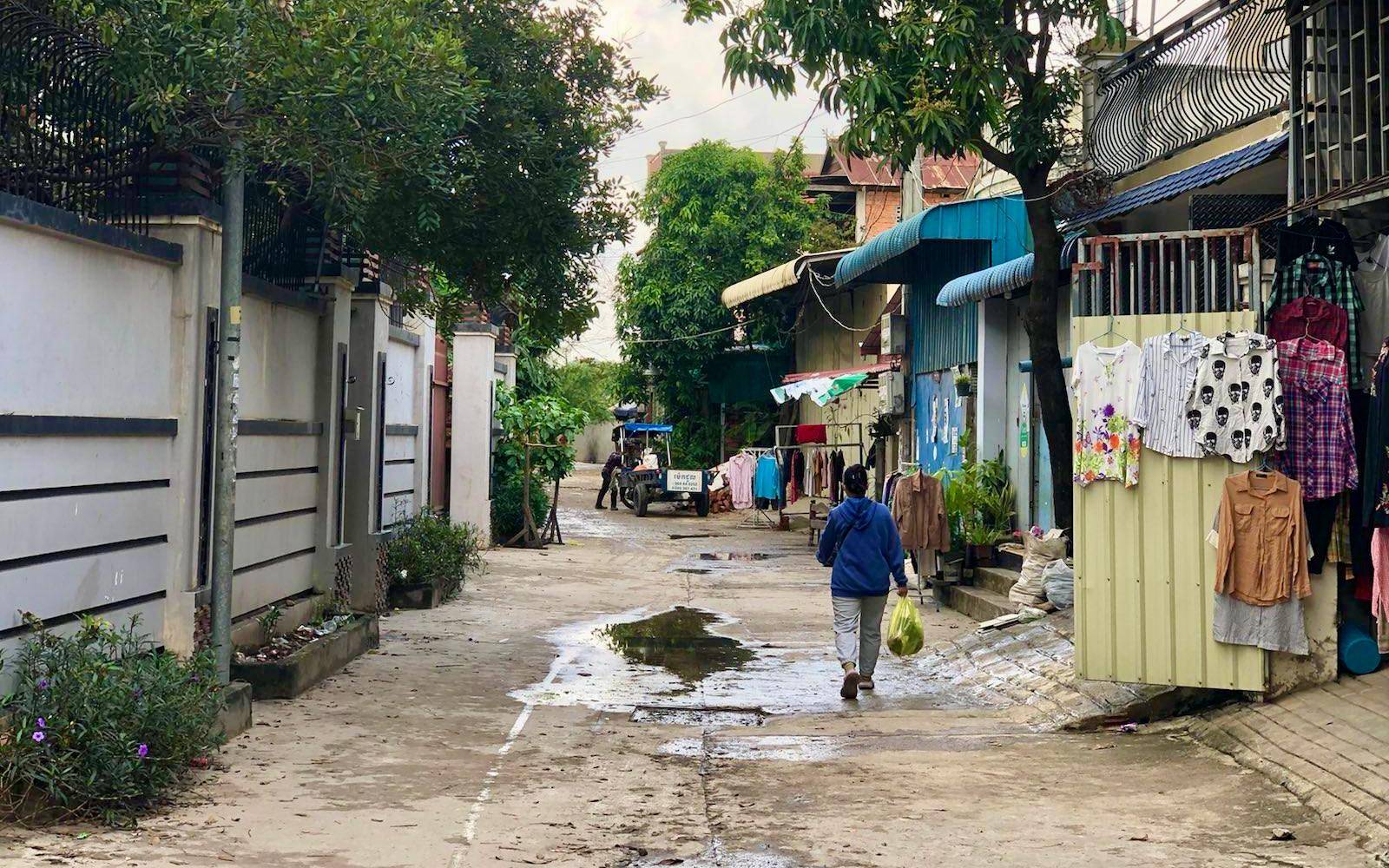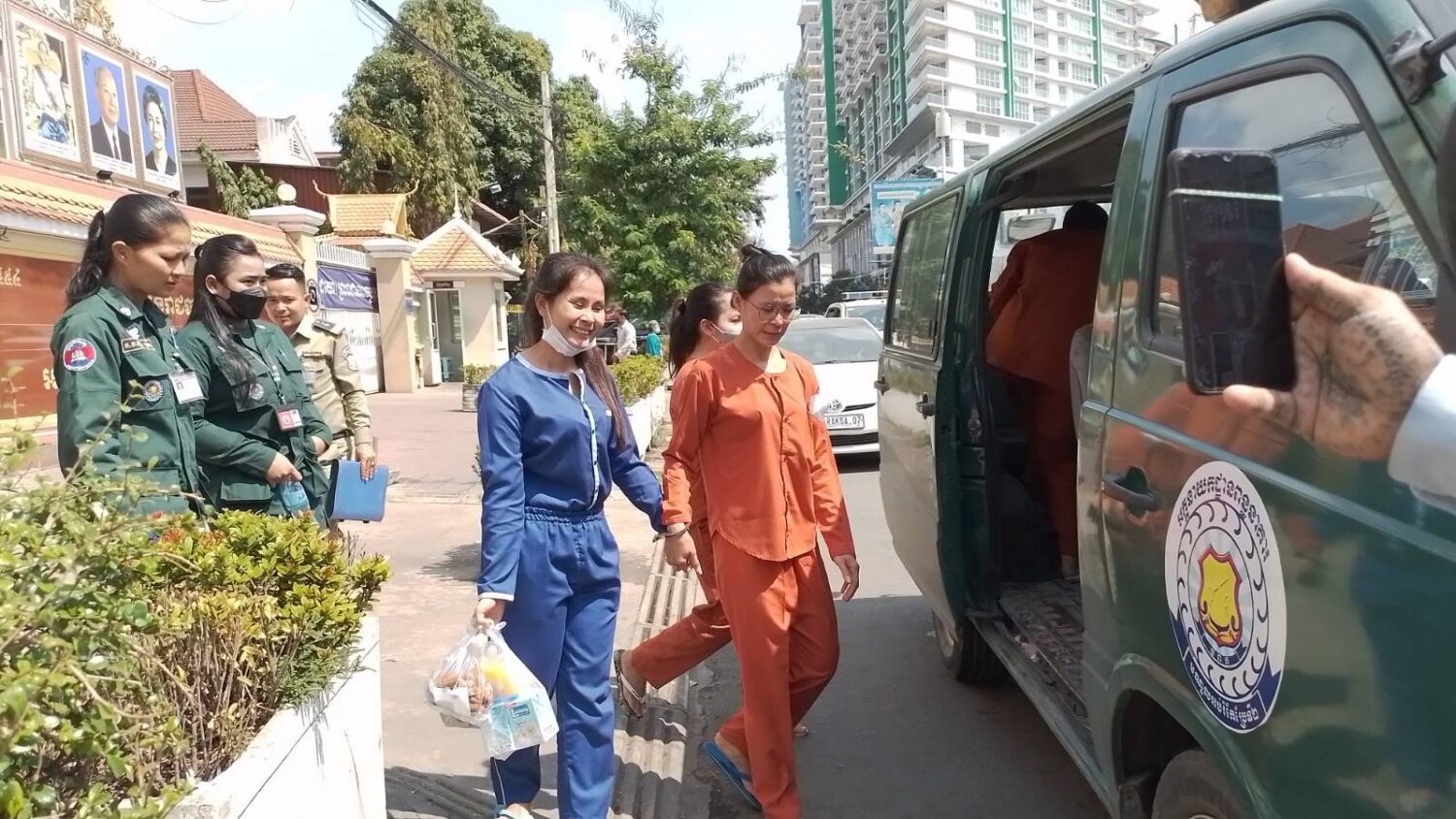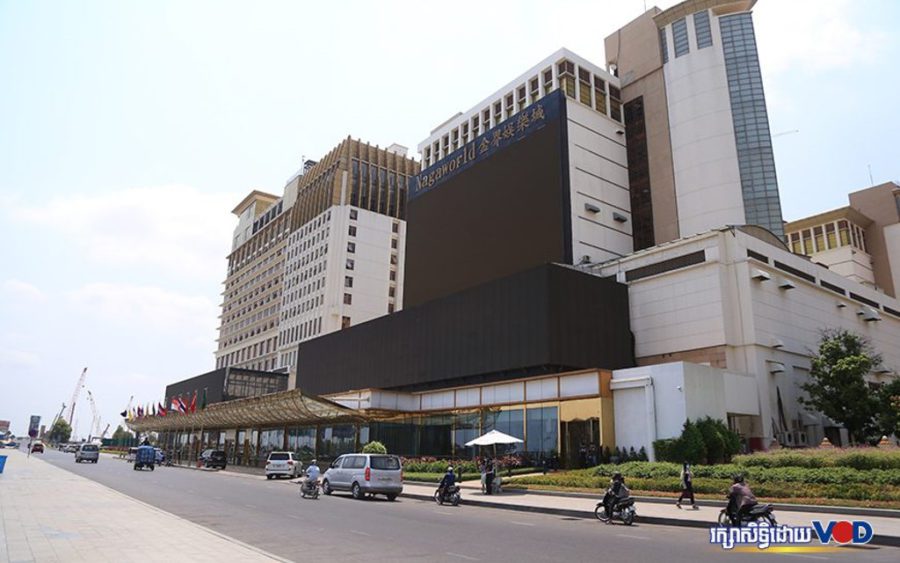So Chanthou was standing outside her Phnom Penh house Wednesday morning when a swarm of police surrounded a tuk-tuk on the corner and handcuffed the driver.
Two officers — their faces covered in masks and helmets — forced the man into the back of the tuk-tuk and sandwiched him on either side to keep him from fleeing. In the front, more police tried to start the tuk-tuk’s engine.
“Help me!” the driver shouted. “I haven’t done anything wrong.”
Chantou, a 51-year-old noodle seller in Pur Senchey district’s Kakab I commune, has seen the same scene play out dozens of times on her residential street near the Phnom Penh airport: Plainclothes officers — their faces always hidden and armed with handguns tucked into their waistbands — ambush a tuk-tuk or motorcycle and arrest its owner, accusing them of possessing drugs. Then they haul the person and their vehicle to the police station, demanding thousands of dollars to get their belongings back and be released.
This time it played out differently. Neighbors said they encircled the tuk-tuk where police had sequestered the driver outside a pizza restaurant, preventing them from driving away. “Let’s see a warrant,” one shouted. “You’re breaking the law,” others told the police.
Chantou’s relative So Chanthea, 40, who lives around the corner, left the meat he was cleaning outside his house to join the group as it grew to around 100 people. “Mostly, people are angry. We live under pressure,” he said.
“Mostly, people are angry. We live under pressure.”
So Chanthea, 40
None of the dozen residents who recalled the scene Friday morning knew the PassApp driver personally or had even seen him in the neighborhood before. But over the past year, the commune has become so fed up with constant arrests and harassment — which they described as a targeted extortion campaign — that hearing the driver’s shouts for help triggered a swell of support.
At least three times a week, usually in the evenings, masked police show up and station themselves around the residential neighborhood to make arrests. But as they supposedly search for drugs, residents say, police confiscate phones, wallets, and the arrestee’s motorcycle or tuk-tuk, demanding fees of $500 to release the person, $1,000 to get the motorcycle back and at least five times that for a tuk-tuk. “Their wallet gets to the police station before they do,” one woman joked.
One man recalled a PassApp driver who was asked to pay $15,000 to get his tuk-tuk back even after police punched him multiple times in the stomach. He has not been back to the neighborhood since.
About two weeks ago, police arrested two village guards and hauled them to the national police commission in Phnom Penh, commune chief Teap Van Roeung said. Other residents and another guard said the duo had previously taken videos and photos of arrests.
Roeung said that the police arrests are outside her control but that they had caused “chaos” in the commune. Commune officials went themselves to convince police to let them go.
Residents and the commune chief readily acknowledge the prevalence of crystal meth, with young kids and adults both within and beyond the commune purchasing the drug from an oft-frequented home down the street from the pizza restaurant. “The drug issue is everywhere,” Roeung said.
But they say police have ignored the dealers and instead focused their efforts on anybody who lives or drives on nearby streets, targeting people who have recently purchased new motorcycles because they are believed to have enough money to pay extortion fees.
On Wednesday, the standoff continued for an hour until the police gave up and removed the man’s handcuffs, returning his wallet and tuk-tuk keys before villagers would allow them through. The next day, a TikTok video was posted with a man identifying himself as the driver, showing bruised wrists from his handcuffs.
“They have done something like this to many people. [Residents] asked me to file a lawsuit but I don’t know where to go, because I’m scared and I’m very poor,” he said. “They handcuffed me without any guilt and then said they were confused … What happens to my honor?”
The video racked up more than 22,000 likes as of Friday. A rare admission of wrongdoing from the national anti-drug department was issued on Thursday. The statement said the department found that a group of its investigating officers had “violated professional discipline and harmed the people” and would send the case to its regulatory department.
“We appreciate the cooperation from all parties as well as constructive feedback from social media outlets that have previously provided timely information to keep security, social safety and correct our officers,” the statement said.
Commune police chief Touch Ty, Pur Senchey district police chief Mon Vuthy and secretary-general for National Authority for Combating Drugs Meas Vyrith all declined to comment.
A much-criticized national drug crackdown has prompted tens of thousands of arrests in the last five years and similar complaints from residents who say they have been abused under the guise of public safety. In another incident in Prek Pnov district’s Kok Roka commune last year, residents said arrests only stopped after they physically intervened.
Kakab villagers said they long ago gave up on complaining to the commune and district police, instead relying on the watchful presence of each other.
Song Sen, a 40-year-old PassApp driver who stood outside with his young daughter on his hip Friday, said that police stopped him last month after he dropped off a passenger in the neighborhood.
Before he allowed the officers to search the tuk-tuk, he looked closely at their hands: Sometimes, residents say, police hide a plastic packet filled with meth or its lookalike between their thumb and forefinger to plant it in the person’s pocket.
A group of neighbors came outside to watch silently as officers searched his tuk-tuk. It was only because of their presence, Sen said, that the officers got nervous and let him go. “They didn’t dare do anything to me,” he said.












